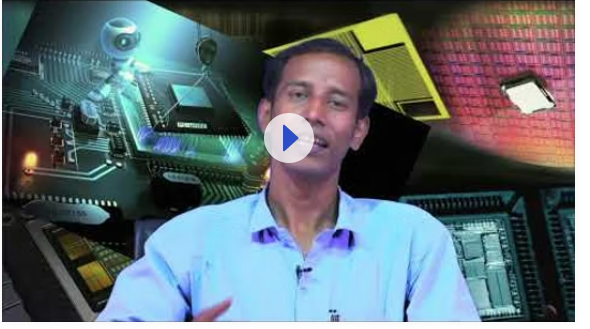Architectural Design of Digital Integrated Circuits free videos and free material uploaded by IIT Kharagpur Staff .
Week 1: Efficient technique/s for Algorithm to Architecture Mapping
Week 2: Efficient technique/s for Algorithm to Architecture Mapping
Week 3: Recent Trends on Adder/Subtractor Design
Week 4: Recent Trends on Multiplier/Divider Design
Week 5: Efficient VLSI Architectures for Various DSP blocks (FIR filter, CORDIC, FFT etc)
Week 6: Efficient VLSI Architectures for Various DSP blocks (FIR filter, CORDIC, FFT etc)
Week 7: Fundamentals of Efficient Design and Implementation strategies of Digital VLSI Design (Clock Tree synthesis, Timing Closure, Synthesis)
Week 8: Fundamentals of Efficient Design and Implementation strategies of Digital VLSI Design (Clock Tree synthesis, Timing Closure, Synthesis)
Week 9:Static Timing Analysis
Week 10: Clock Skew
Week 11: VLSI Interview FAQsWeek 12: Tips and tricks for Digital VLSI based IC design
Digital arithmetic plays an important role in the design of general-purpose digital processors and of embedded systems for signal processing, graphics, and communications. In spite of a mature body of knowledge in digital arithmetic, each new generation of processors or digital systems creates new arithmetic design problems. Designers, researchers, and graduate students will find solid solutions to these problems in this course. This course explains the fundamental principles of algorithms available for performing arithmetic operations on digital computers. These include basic arithmetic operations like addition, subtraction, multiplication, and division in fixed-point and floating-point number systems as well as more complex operations such as square root extraction and evaluation of exponential, logarithmic, and trigonometric functions. The algorithms described are independent of the particular technology employed for their implementation.INTENDED AUDIENCE :Computer Science, Electrical Engineering, Electronics & Communication EngineeringPREREQUISITES :Basic Digital Electronics Design.INDUSTRY SUPPORT :Intel, Samsung, Freescale, Texas Instruments

- 0 Reviews
- 5 Students
- 351 Courses

Write a public review